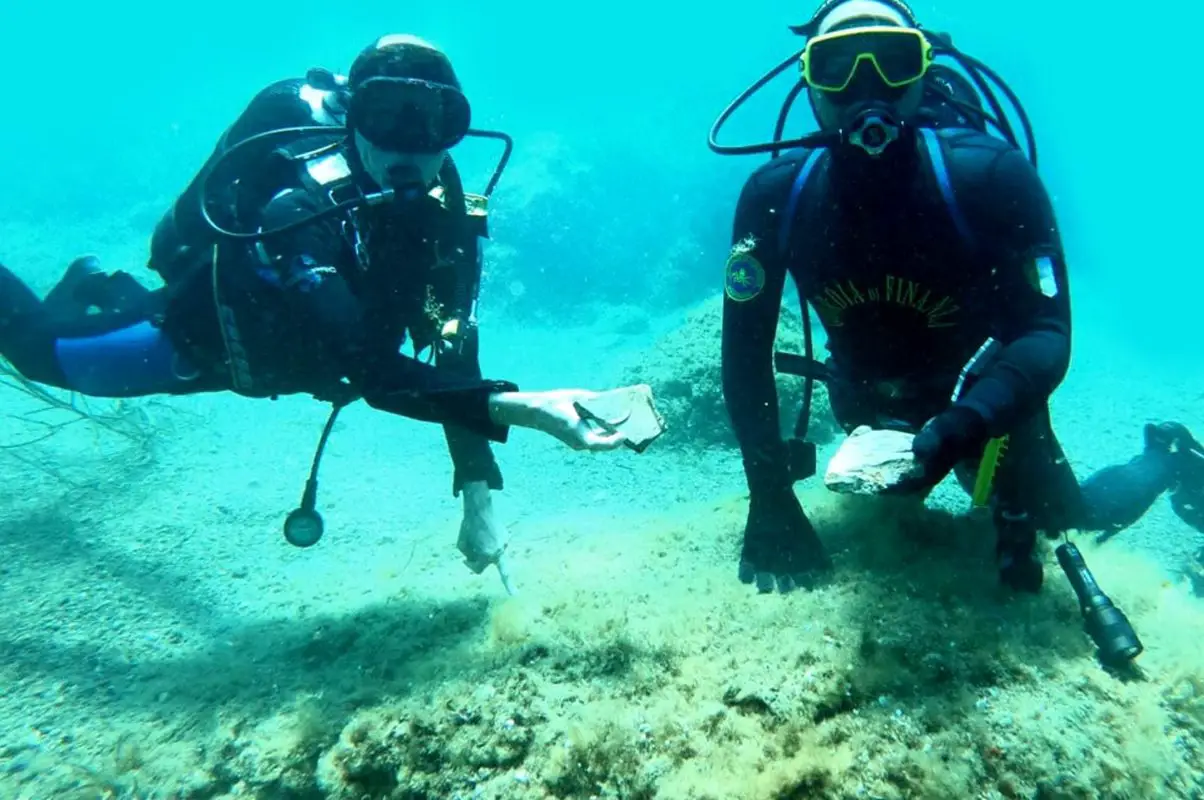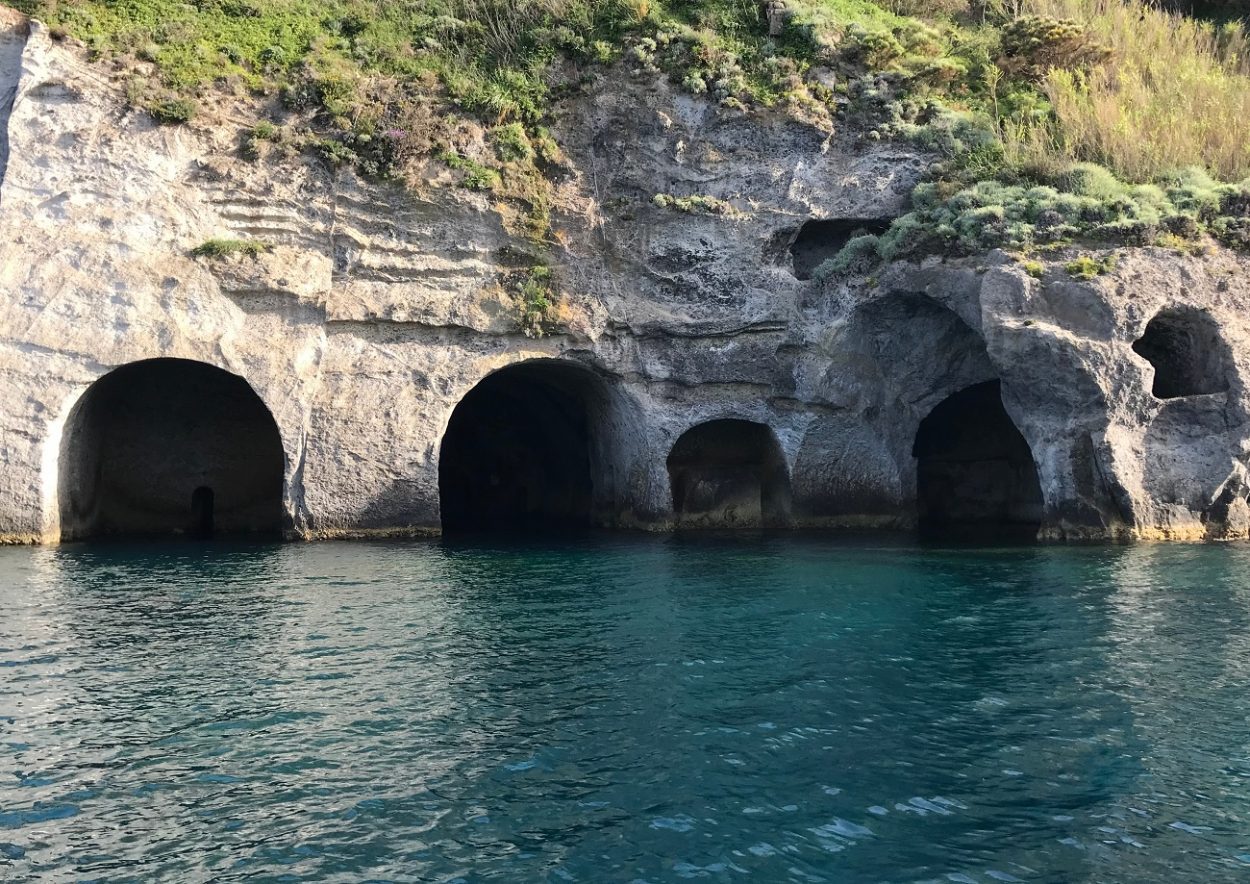A team of divers from the Civitavecchia Naval Station, working in collaboration with the Ministry of Culture, have discovered the architectural remains of a Roman structure off the coast of Ponza, Italy.
During the Roman Period, Ponza was a Roman port and colony which was constructed to control the central Tyrrhenian Sea.
The island also became a place of exile for important Roman figures, such as Nero Caesar (the eldest brother of Caligula), along with Agrippina the Younger (mother of Nero) and Julia Livilla.
The Romans built a large villa complex on the island, known today as the villa of Puna della Madonna, with some sources suggesting that the villa was built for Augustus Caesar as an Imperial resort.

Between the end of the Republican age and the first decades of the Empire, a series of rock cut caves and pools called the Grotte di Pilato was constructed to the west of the villa. These served as ornate fish farms to ensure the Roman elite had a secure supply of mullet and scarlet, moray eels and lobsters.
As part of a study to document the underwater archaeology, the divers found a series of architectural slabs near the Grotte di Pilato, showing a relief decoration that depicts the so-called “flower woman”. This decorative motif is datable to between the 2nd and 1st century BC, with comparable designs being found throughout Lazio, Campania and in Southern Etruria.
The team suggests that the slabs originally came from the villa of Puna della Madonna and found their way into the sea a short distance away due to erosion or other factors. This gives new insights into dating the period from which the villa complex was constructed, likely predating the previously accepted Augustan age.
Header Image – Grotte di Pilato – Image Credit : Shutterstock





